In our relentless quest for vitality and longevity, we often overlook the simplest solutions, generously offered by nature. Herbal wellness, a treasure trove of health and harmony, embodies the essence of holistic healing. It emphasizes the body’s intrinsic ability to heal itself when supported by the natural world.
This age-old wisdom, rooted in various traditional practices from around the globe, is more than just a trend; it’s a lifestyle choice. Herbal wellness aligns us with the rhythms of nature and our own bodies. Let’s delve into the verdant world of herbal wellness, exploring its benefits, popular herbs for health, and incorporating these natural allies into our daily lives.
The Essence of Herbal Wellness
Herbal wellness utilizes plants, herbs, and botanicals for their therapeutic properties to support health and well-being. This practice, integral to traditional medicine systems such as Ayurveda, Traditional Chinese Medicine (TCM), and Western herbalism, views the human body as part of the natural world, striving for balance and harmony. Nature possesses a high potency of maintaining and healing all creatures and that’s what is the essence of herbal wellness. While using these herbs, it is important to assess the root cause of your health problem. If it falls within improper diet, excessive stress and sedentary lifestyle, it is important to make modifications in lifestyle for these medicines to aid the healing.
The Benefits of Herbal Wellness
1. Natural Support
Herbs offer gentle support to the body’s systems, promoting detoxification, immunity, digestion, and mental well-being. Since these are plant based and served by nature, there are almost no side effects in using them. From reducing inflammation to promoting relaxation, herbs offer a diverse array of therapeutic effects. Unlike synthetic medications, herbal remedies often work synergistically with the body’s own processes, gently restoring balance and harmony.
2. Holistic Healing

Herbal wellness offers a holistic approach to healing the body by recognizing the interconnectedness of physical, mental, and emotional health. Unlike conventional medicine, which often focuses on treating specific symptoms or ailments, herbal wellness seeks to address the root cause of imbalance within the body. By harnessing the therapeutic properties of botanical substances, herbal remedies nourish and support the body’s natural ability to heal itself. Additionally, many herbs not only target physical ailments but also promote mental clarity, emotional well-being, and spiritual balance. This holistic approach considers the individual as a whole, taking into account lifestyle factors, diet, and environment to create a comprehensive wellness plan.
3. Accessibility
Many herbs can be grown at home or easily sourced from nearby stores, making herbal wellness an accessible option for many. Here are a few options on how these medicines can be procured:
Gardening:

This is the best way to get access to herbal medicine. If you can grow the desired plants in your garden, home or farms, there is nothing better than that. While many of the herbs are easy to maintain, few of them require some care. Hence we suggest you assess the conditions of your location, housing, and ease of growing these herbs.
If it is not possible to grow, we have below options for you.
Purchase:
With more and more awareness around Herbal wellness, a lot of good manufacturers have made these herbs accessible for purchase. However, it is suggested to review the feedback of such products and prefer to buy least adulterated ones. These medicinal products are best impactful when they are pesticides and preservatives free. The products are available in raw as well as dried and stored forms.
Shop Herbal Seeds For Gardening Here.
Supplements:
In case of difficulty in procuring herbal medicines, a lot of manufacturers produce the storage friendly and concentrated forms of these medicines. These medicines are available in the form of powder, liquid as well as tablets.
Shop Herbal Supplements Here.
4. Customizable Use
Herbal wellness offers a customizable solution for individuals seeking to optimize their health and well-being. Unlike one-size-fits-all approaches, herbal remedies can be tailored to suit each person’s unique needs and preferences. With a vast array of herbs available, individuals can select specific botanicals based on their health goals, whether it’s boosting immunity, supporting digestion, improving sleep, or managing stress. Furthermore, herbal preparations come in various forms, including teas, tinctures, capsules, and topical applications, allowing individuals to choose the delivery method that best suits their lifestyle and preferences.
Popular Herbs and Their Benefits
1. Turmeric (Curcuma longa)

Renowned for medicinal properties, turmeric is a cornerstone in preventing and addressing chronic conditions. Curcumin, the active compound in turmeric, has potent anti-inflammatory and antioxidant effects. It’s often used to support joint health and reduce inflammation in conditions like arthritis.
2. Ginger (Zingiber officinale)
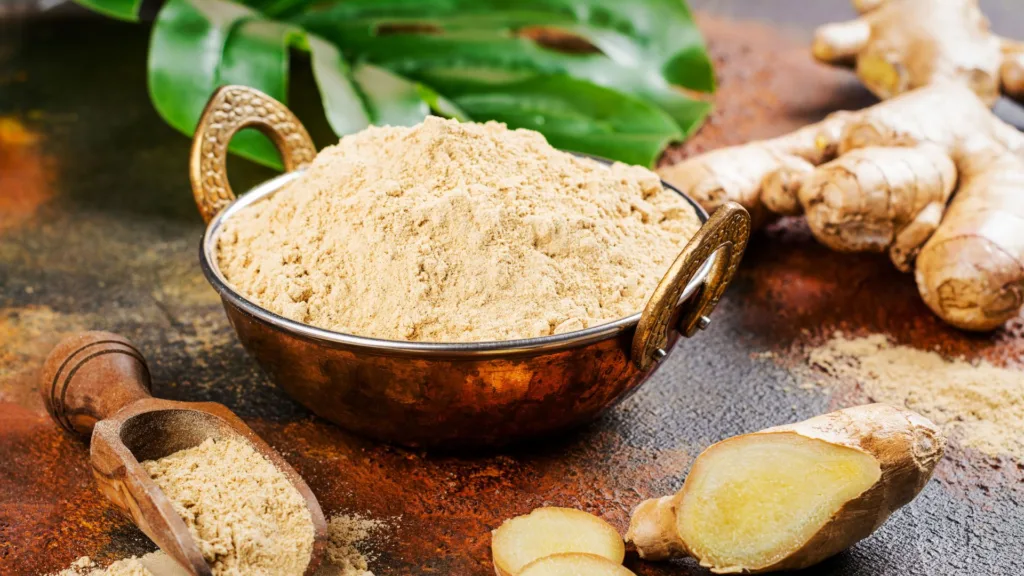
Ginger is a versatile herb widely used in herbal wellness for its numerous health benefits. Known for its spicy flavor and warming properties, ginger has been utilized in traditional medicine for centuries. Its active compounds, such as gingerol and shogaol, possess potent anti-inflammatory and antioxidant properties, making it effective for a variety of health conditions. Ginger is particularly renowned for its ability to soothe digestive issues, including nausea, indigestion, and bloating. It can also help alleviate motion sickness and morning sickness during pregnancy.
3. Lavender (Lavandula)
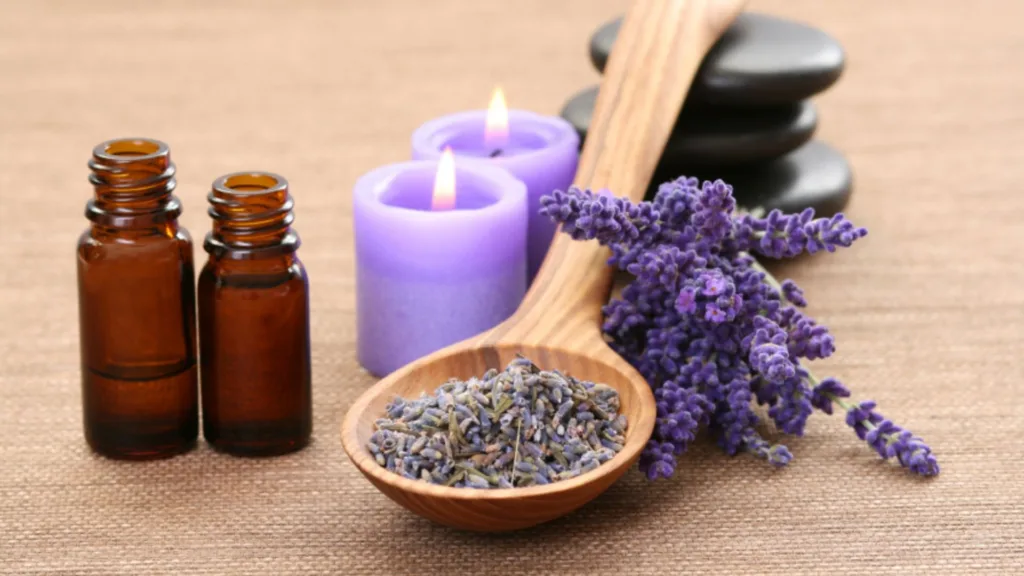
A fragrant flower that contains essential oils with various therapeutic benefits. Lavender is commonly used to promote relaxation, reduce stress and anxiety, and improve sleep quality. Aromatherapists often diffuse lavender essential oil to create a calming atmosphere, while herbalists may recommend lavender tea or tinctures to help alleviate tension and promote a sense of tranquility.
4. Peppermint (Mentha piperita)
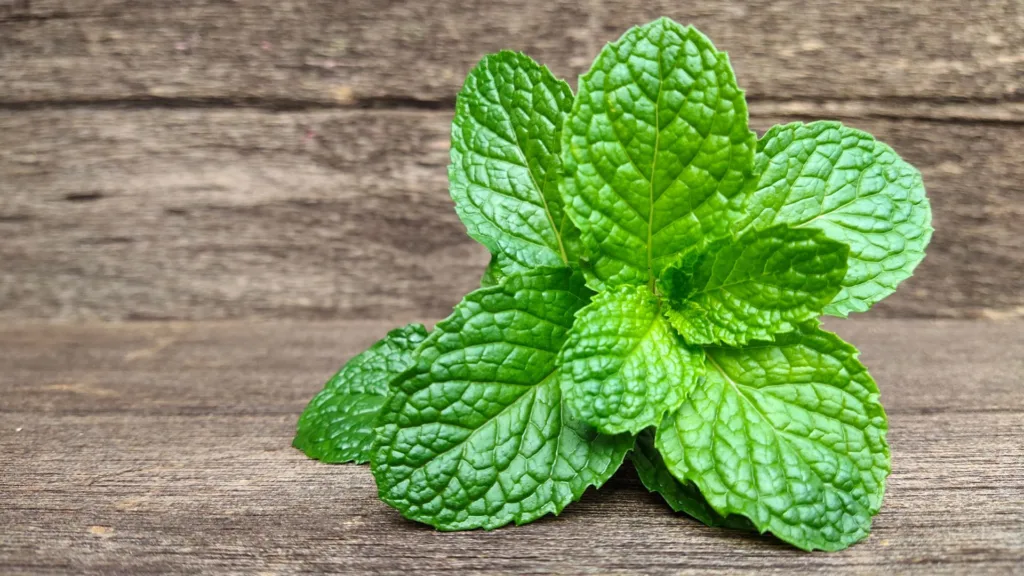
The aromatic leaves of this herb contains menthol, which imparts a cooling sensation and provides a range of therapeutic effects. Peppermint is commonly used to soothe digestive discomfort, including symptoms like bloating, gas, indigestion, and nausea. Its carminative properties help relax the muscles of the gastrointestinal tract, easing spasms and promoting smoother digestion. Additionally, peppermint’s refreshing scent and menthol content make it a popular choice for alleviating headaches and migraines, as well as clearing congested sinuses and promoting respiratory health.
5. Ashwagandha (Withania somnifera)

Also known as Indian ginseng, is a powerful herb renowned for its adaptogenic properties, making it a popular choice for herbal wellness. Adaptogens help the body adapt to stressors, promoting overall resilience and balance. Ashwagandha has been used in traditional Ayurvedic medicine for centuries to promote vitality, improve energy levels, and enhance overall well-being.
6. Holy Basil (Ocimum sanctum)
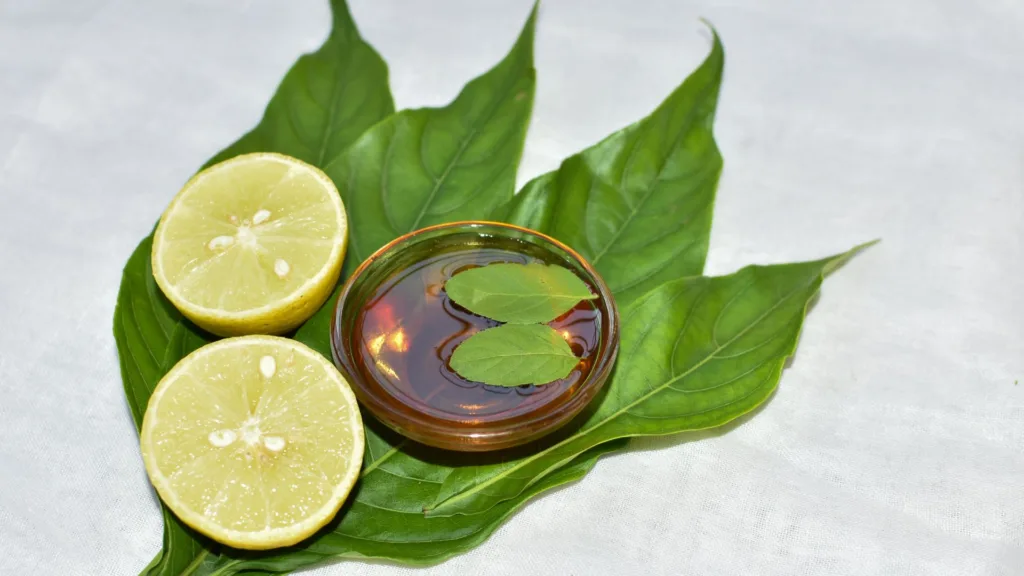
Also known as Tulsi, is a revered herb in Ayurvedic medicine and has been used for centuries to promote overall wellness. It is prized for its adaptogenic properties, which help the body adapt to stress and promote balance. Holy basil is rich in antioxidants and phytochemicals that support immune function and protect against oxidative damage caused by free radicals. Holy basil is also known for its calming effects on the nervous system, making it useful for reducing stress, anxiety, and promoting relaxation.
7. Indian Gooseberry (Phyllanthus emblica)

Also known as Amla, it is as a powerhouse herb renowned for its numerous health benefits. Rich in vitamin C, antioxidants, and phytonutrients, Indian Gooseberry is a cornerstone of Ayurvedic medicine and herbal wellness practices. It supports overall health by boosting immunity, promoting digestion, and enhancing skin and hair health. Its anti-inflammatory and anti-aging properties, making it a valuable addition to any wellness routine. The high vitamin C content in Indian Gooseberry helps strengthen the immune system, protecting the body against infections and illnesses. It also aids digestion by stimulating the production of digestive enzymes and promoting gut health. Furthermore, its antioxidant properties help combat oxidative stress, which can contribute to various chronic diseases.
8. Aloe Vera

It is a popular herb known for its wide range of health benefits, making it a staple in herbal wellness practices. Its gel-like substance, found in the leaves, contains vitamins, minerals, enzymes, amino acids, and antioxidants that contribute to its medicinal properties. Aloe vera is commonly used topically to soothe and hydrate the skin, making it effective for treating sunburns, minor cuts, and dry skin conditions like eczema and psoriasis.
Integrating Herbal Wellness Into Your Life
1. Herbal Teas:
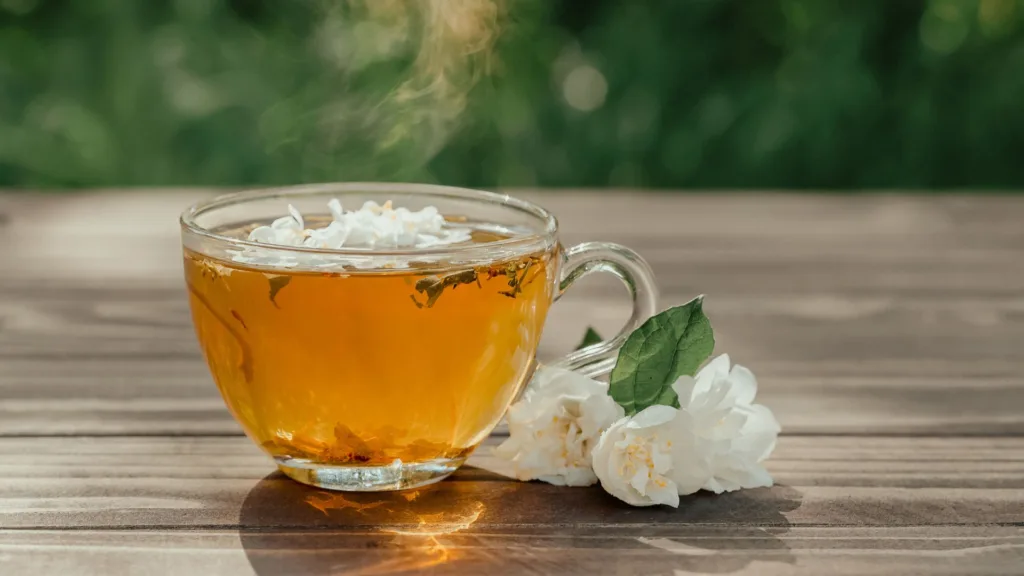
Begin your day with a soothing cup of herbal tea. Choose herbs that align with your health goals, such as chamomile for relaxation or green tea for antioxidants.
2. Culinary Herbs:

Incorporate herbs like rosemary, thyme, and oregano into your cooking for flavor and health benefits. These herbs not only enhance taste but also offer antimicrobial and anti-inflammatory properties.
3. Herbal Supplements:

For a more concentrated dose of herbal benefits, consider supplements in the form of capsules, tinctures, or powders. Consult with a healthcare professional to choose the right supplement for you.
4. Aromatic Uses:
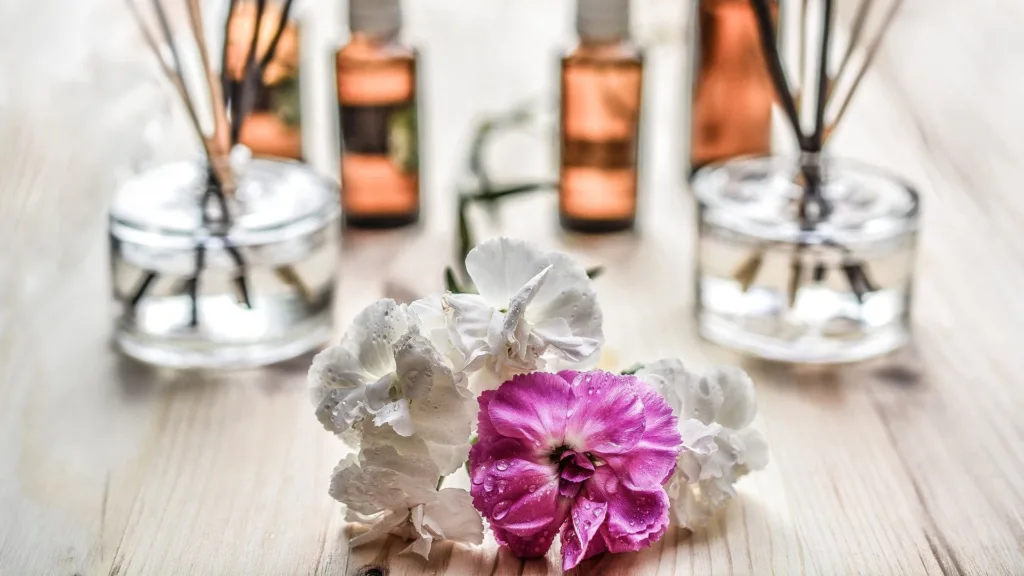
Essential oils from herbs can be used in aromatherapy to uplift mood, improve cognitive function, and promote relaxation. Diffuse oils like lavender or peppermint in your home or workspace.
Shop Herbal Essential Oils for Aromatherapy Here.
5. Skin Care:
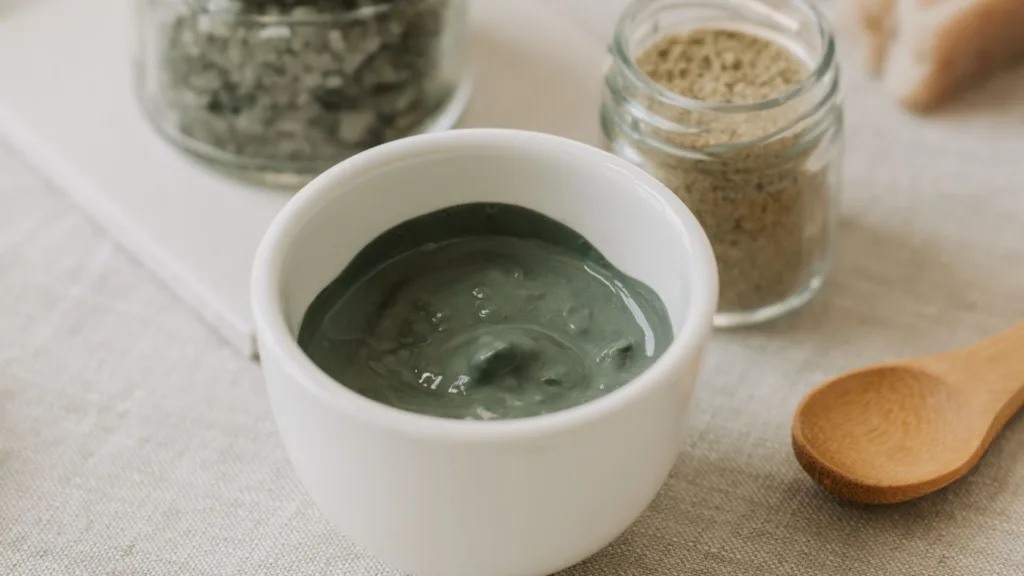
Many herbs have skin-healing properties. Incorporate herbal products into your skincare routine, such as calendula for healing, witch hazel for toning, and aloe vera for moisturizing.
A Note of Caution
While herbal wellness offers numerous benefits, it’s essential to approach it with knowledge and respect. Some herbs can interact with medications or be unsuitable for certain health conditions. Always research and consult with a healthcare professional before incorporating new herbs into your regimen.
Final Words From The Blissed Men
Embracing herbal wellness is a journey back to nature and to ourselves. It’s about slowing down, listening to our bodies, and nurturing them with the gifts of the earth. As we integrate these natural allies into our lives, we foster a deeper connection with the environment and cultivate a sustainable approach to health and well-being.
Herbal wellness is not just about adding herbs to our diet; it’s a holistic embrace of a lifestyle that values simplicity, sustainability, and harmony. It’s a path paved with petals and leaves, leading us to a vibrant, healthful existence, in tune with the natural world.
Related Read
All You Need To Know About Wellness Wheel

